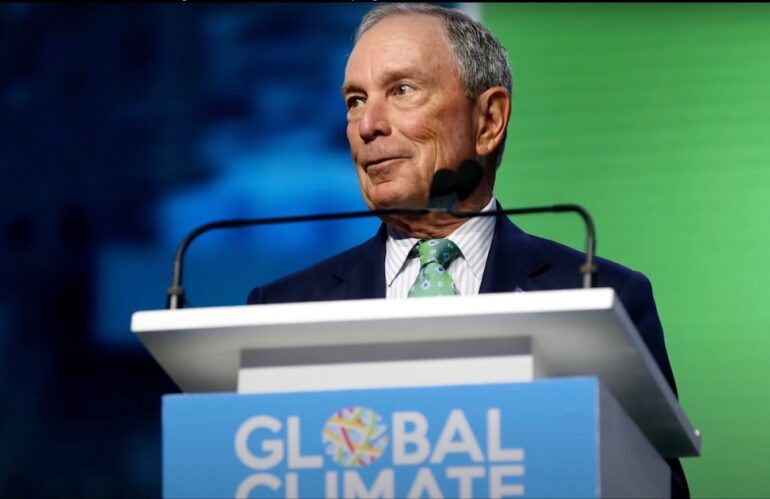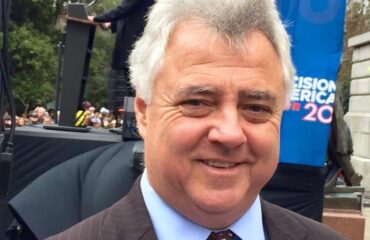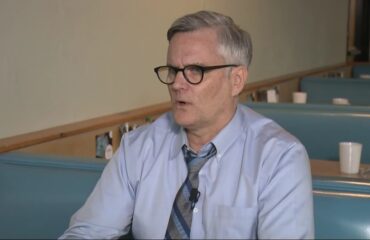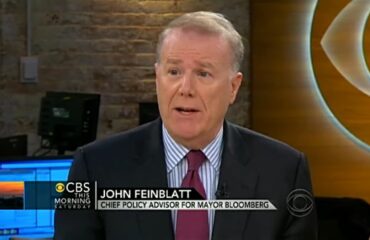Michael R. Bloomberg, the 108th Mayor of the City of New York, is a prominent figure known for his transformative leadership and innovative initiatives that have shaped the landscape of American politics. Elected to office in 2001, Mayor Bloomberg embarked on a journey marked by significant accomplishments and a relentless pursuit of progress. His tenure was characterized by a diverse range of policies aimed at enhancing the quality of life for New Yorkers and setting new standards for urban governance. From economic revitalization to environmental sustainability, Mayor Bloomberg’s legacy continues to inspire leaders across the nation.
Early Years and Political Ascent
Path to Mayoralty
Michael R. Bloomberg’s journey to becoming the Mayor of New York City was paved with notable achievements and strategic decisions. Before entering politics, he made a name for himself as a successful entrepreneur and philanthropist, laying the groundwork for his future endeavors in public service. In 2001, he clinched a historic victory, securing the mayoral seat and embarking on a mission to redefine urban governance.
Achievements in First Term
During his first term in office, Mayor Bloomberg spearheaded a series of groundbreaking initiatives that left an indelible mark on the city’s landscape. From tackling crime rates to promoting affordable housing, his administration prioritized the well-being of New Yorkers and set a precedent for effective governance. Notable achievements included the implementation of public health strategies such as the ban on smoking in restaurants and bars, as well as reforms in the education sector.
- Crime Reduction: Mayor Bloomberg’s efforts led to a significant decrease in crime rates, fostering a safer environment for residents and visitors alike.
- Affordable Housing Boom: Under his leadership, the city witnessed a surge in affordable housing projects, addressing the pressing need for accessible accommodation.
- Education Reform: By gaining control of the nation’s largest school district, Mayor Bloomberg initiated reforms aimed at improving educational outcomes and opportunities for students.
| Achievement | Impact |
| Crime Reduction | Enhanced safety and security across the city |
| Affordable Housing Boom | Addressed housing affordability challenges, benefiting low-income families |
| Education Reform | Improved educational standards and opportunities for students |
Re-election and Second Term Agenda
In 2005, Mayor Bloomberg secured re-election with a diverse coalition of support, reaffirming his commitment to advancing the city’s interests. His second term in office was marked by a strategic focus on economic stability, job creation, and innovative solutions to emerging challenges. Balancing the budget, driving down unemployment rates, and launching new initiatives underscored his dedication to sustainable progress.
New Challenges and Initiatives
Mayor Bloomberg’s second term witnessed the introduction of ambitious programs aimed at addressing complex societal issues and fostering long-term growth. From combating poverty to championing environmental causes, his administration embraced a proactive approach to governance. Noteworthy initiatives included the fight against global warming, poverty alleviation programs, and advocacy for sensible immigration reform.
Alt: Michael R. Bloomberg talks to people
- Poverty Alleviation: Through innovative programs, Mayor Bloomberg targeted poverty at its roots, empowering vulnerable communities and promoting economic inclusion.
- Environmental Advocacy: The comprehensive campaign to combat global warming highlighted the city’s commitment to sustainability and environmental stewardship.
- Immigration Reform: Spearheading the Partnership for a New American Economy, Mayor Bloomberg advocated for pragmatic immigration policies to drive economic growth and diversity.
| Initiative | Objective |
| Poverty Alleviation | Empowerment of vulnerable communities through targeted programs |
| Environmental Advocacy | Promote sustainability and combat climate change |
| Immigration Reform | Advocate for sensible immigration policies to drive economic prosperity |
Economic Development and Urban Renewal
Business Support Programs
Mayor Bloomberg’s administration prioritized the growth and resilience of small businesses, recognizing their pivotal role in driving economic vitality and community development. Through a series of targeted programs and incentives, he sought to empower entrepreneurs, foster innovation, and create a conducive environment for business expansion.
Impact on Local Economy
The initiatives launched under Mayor Bloomberg’s leadership had a tangible impact on the local economy, spurring job creation, entrepreneurship, and economic diversification. By supporting small businesses and streamlining regulatory processes, his administration laid the foundation for sustained economic growth and prosperity.
- Job Creation: Small business support programs led to the generation of new employment opportunities, bolstering economic stability and reducing unemployment rates.
- Entrepreneurial Ecosystem: By fostering an environment conducive to innovation and entrepreneurship, Mayor Bloomberg encouraged the emergence of new ventures and industries.
- Regulatory Efficiency: Streamlining regulatory processes enhanced the ease of doing business, attracting investments and stimulating economic activity.
| Program | Outcome |
| Job Creation | Increased employment opportunities and reduced unemployment rates |
| Entrepreneurial Ecosystem | Cultivated a culture of innovation and supported the growth of startups |
| Regulatory Efficiency | Enhanced business environment through streamlined regulatory processes |
Sustainable Urban Planning
Under Mayor Bloomberg’s leadership, New York City witnessed a paradigm shift towards sustainable urban planning and development. Embracing principles of environmental conservation and smart growth, his administration implemented policies aimed at creating resilient, livable communities that prioritize sustainability and quality of life.
Green Building Initiatives
The emphasis on green building initiatives underscored Mayor Bloomberg’s commitment to environmental stewardship and energy efficiency. By promoting sustainable construction practices and incentivizing green building certifications, his administration set a new standard for urban development and architectural design.
Alt: Michael R. Bloomberg speaks from the podium
- Energy Efficiency: Green building initiatives led to significant reductions in energy consumption and carbon emissions, contributing to environmental sustainability.
- Environmental Impact: By prioritizing sustainable construction practices, Mayor Bloomberg mitigated the city’s environmental footprint and promoted eco-friendly infrastructure.
- Quality of Life: Green buildings enhanced residents’ well-being by providing healthier indoor environments and reducing operational costs.
| Initiative | Impact |
| Energy Efficiency | Reduced energy consumption and carbon emissions, promoting sustainability |
| Environmental Impact | Mitigated environmental footprint and promoted eco-friendly infrastructure |
| Quality of Life | Enhanced well-being through healthier indoor environments and cost savings |
Conclusion
In conclusion, Michael R. Bloomberg’s tenure as the Mayor of New York City stands as a testament to visionary leadership, bold decision-making, and a steadfast commitment to progress. His legacy transcends traditional political boundaries, inspiring a new generation of leaders to embrace innovation, inclusivity, and sustainability in governance. From economic revitalization to environmental advocacy, Mayor Bloomberg’s impact reverberates across the nation, shaping the future of urban governance and community development. As a pioneer in public service and civic engagement, his contributions continue to resonate, leaving an enduring imprint on the fabric of American politics.








